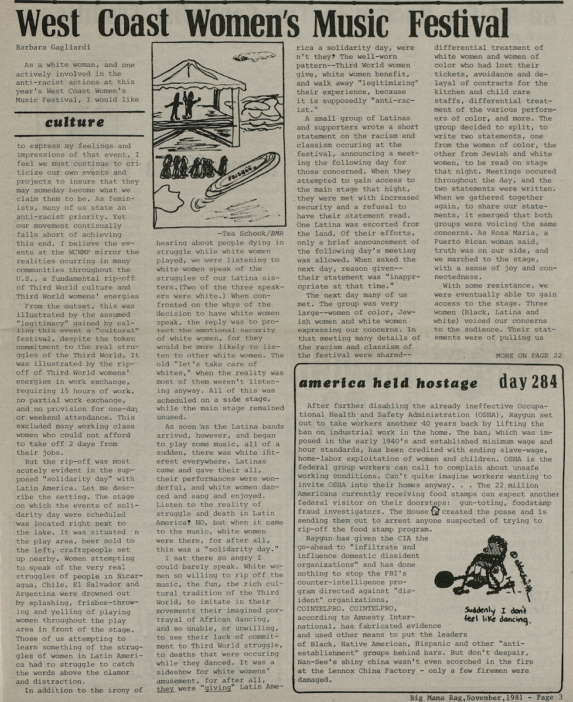When the 1981 West Coast Women’s Festival attempted to stage a “Solidarity Day” to raise awareness about political struggles in Latin America, activist and writer Barbara Gagliardi grew exasperated by what she saw as the limits of that solidarity — the racism and classism of the larger crowd.
Gagliardi noted, in particular, that the staging of the Solidarity events created a grotesque juxtaposition: when activists spoke about the plight of those in Nicaragua, Chile, El Salvador, and Argentina, they did so next to a designated “play area,” and so the political speeches at the microphone were drowned out by the sound of splashing and frisbee-playing women nearby.
Gagliardi reported that many women, particularly women of color, concluded that the day’s events rang hollow — that they were more offensive than inspiring. When a small group of Latinas and their supporters wrote a statement protesting the classism and racism of the festival, they were not allowed to read it later that night — a decision which further alienated them, and highlighted the white privilege of the festival.
Out of this conflict, a group of women identified themselves as committed to bringing “true anti-racism” to the feminist community and to the festival. They met, tellingly, at Pacific Center to hash out how to improve future stagings of the festival and to ensure equitable racial representation among its organizers.
